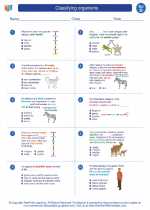Carbonation
Carbonation is the process of dissolving carbon dioxide (CO2) in water to create carbonic acid (H2CO3). This process is commonly associated with the creation of carbonated beverages, such as sodas and sparkling water.
How Does Carbonation Work?
When carbon dioxide is dissolved in water under pressure, it forms carbonic acid, which gives carbonated beverages their characteristic tangy taste. The bubbles in carbonated drinks are the result of the release of carbon dioxide gas when the pressure is released, such as when a soda can or bottle is opened.
Applications of Carbonation
Carbonation is not only used in beverages but also in other industrial processes, such as the carbonation of concrete to improve its strength and durability, and in the treatment of water and wastewater to adjust its pH levels.
Study Guide
- What is carbonation?
- How is carbonation related to the creation of carbonated beverages?
- Explain the process of carbonation and the formation of carbonic acid.
- What are the applications of carbonation beyond the production of carbonated beverages?
◂Science Worksheets and Study Guides Fourth Grade. Classifying organisms

 Worksheet/Answer key
Worksheet/Answer key
 Worksheet/Answer key
Worksheet/Answer key
 Worksheet/Answer key
Worksheet/Answer key
 Vocabulary/Answer key
Vocabulary/Answer key
 Vocabulary/Answer key
Vocabulary/Answer key
 Vocabulary/Answer key
Vocabulary/Answer key
 Vocabulary/Answer key
Vocabulary/Answer key
